What NOT to feed your cats and dogs this Christmas
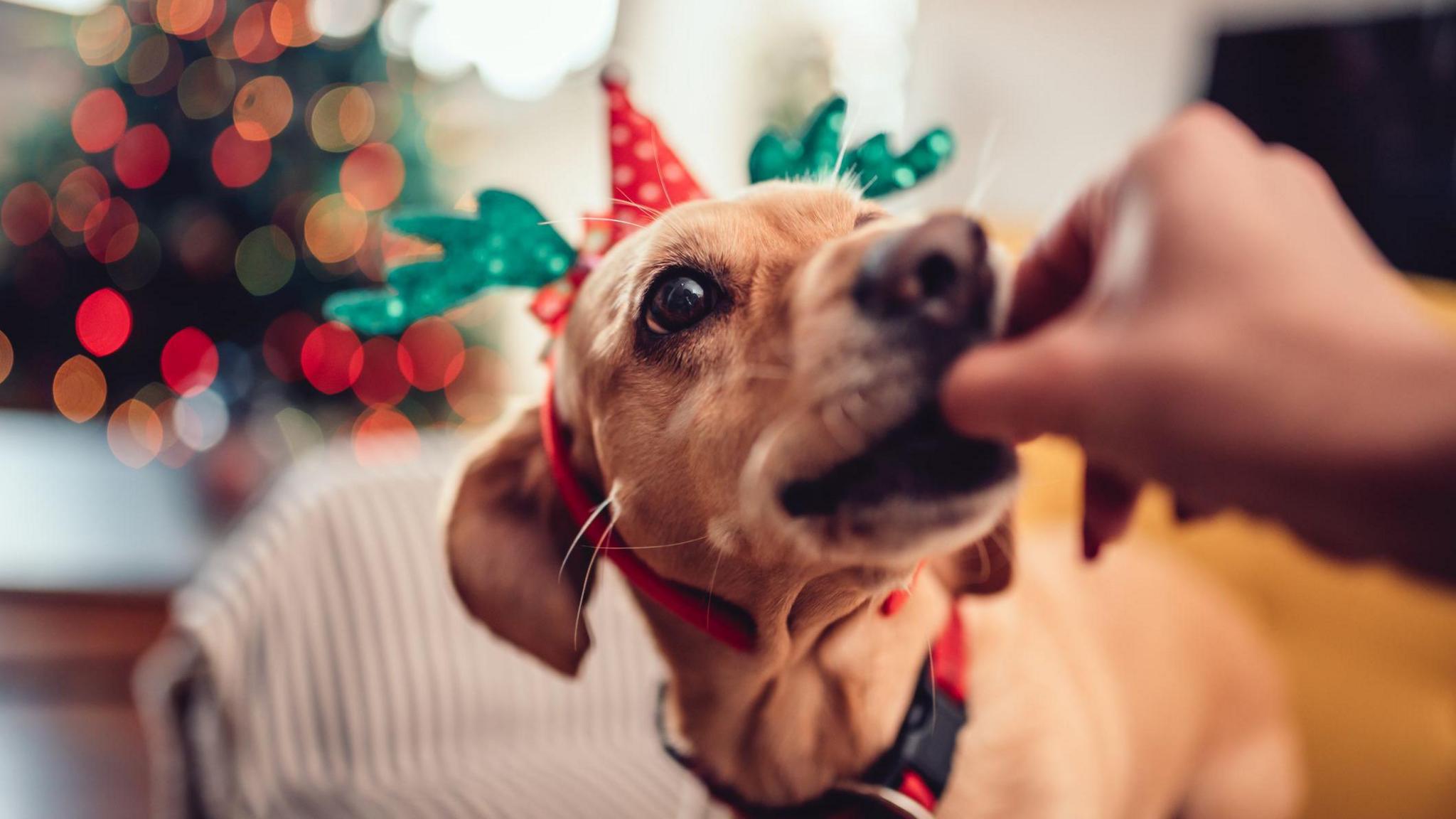
- Published
Christmas is often a time for tasty snacks like chocolates and mince pies.
But while they may be a treat for us, they can be harmful for our furry friends.
Cats and dogs have a different digestive system to us and there are some things we need to make sure they don't get their teeth into!
Take a look at our handy guide of foods to be avoided by pets, to keep them safe and well this Christmas.
More festive stories
Are you going to see a Christmas lights switch-on?
- Published14 November
What design would YOU like to see on a Christmas stamp?
- Published4 November
Will Ferrell's Elf costume up for sale
- Published4 November
RSPCA expert Lisa Hens gives us her top tips on what not to feed your dogs
Dogs and chocolate
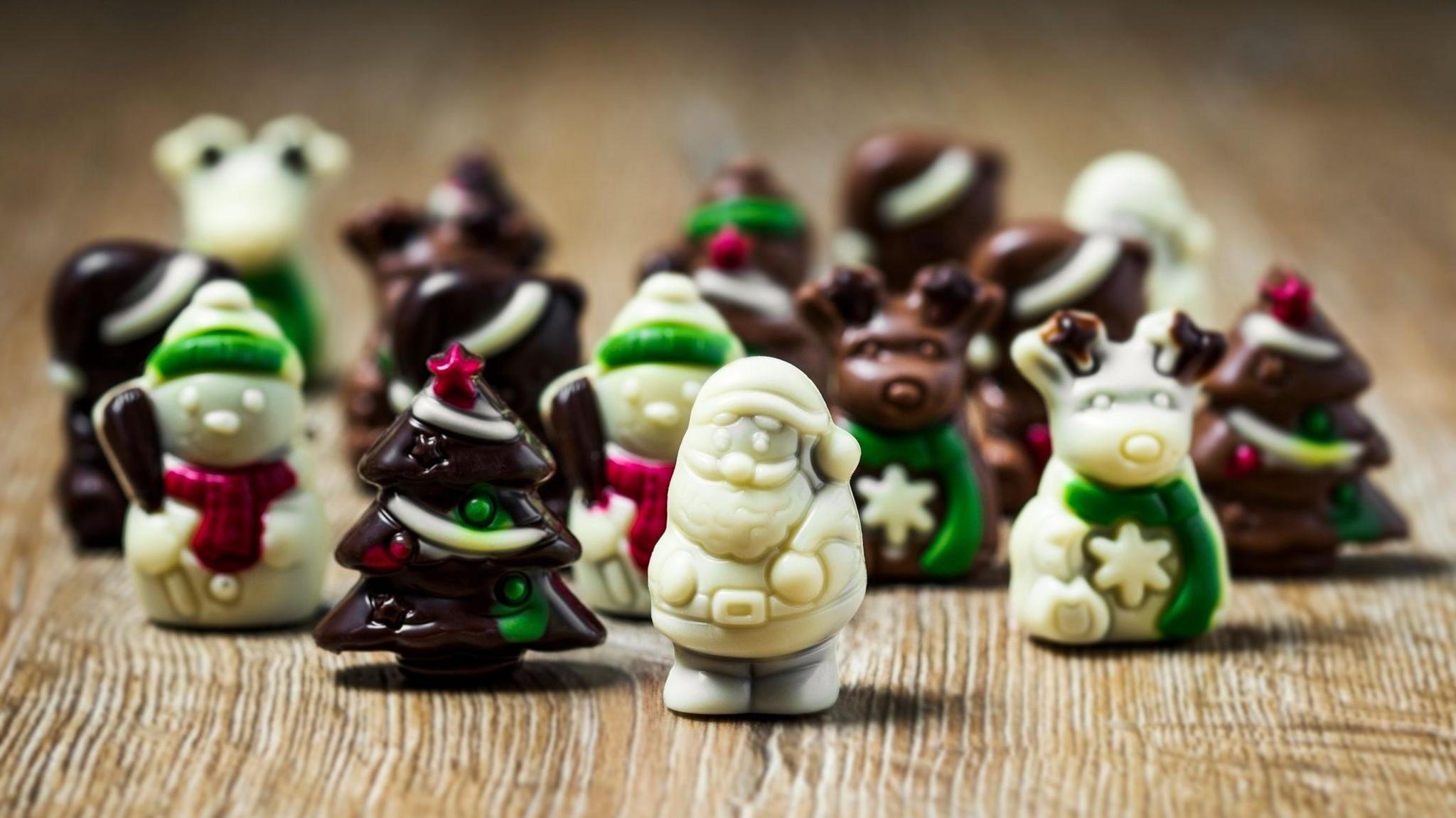
Chocolate is toxic to dogs and cats - even in small amounts.
It contains something called theobromine which can cause nausea, vomiting, diarrhoea, heart problems, muscle tremors and seizures.
Darker chocolate contains more theobromine and is considered to be more toxic than other types.
Chocolate also has caffeine in it which is also harmful to pets. They can become restless and suffer from rapid breathing if they eat it.
Chocolate isn't the only treat poisonous to pets, a lot of the sweets we eat over Christmas contain an ingredient called xylitol - which can also be very dangerous for our animals.
Mince pies and Christmas pudding - dogs avoid these!
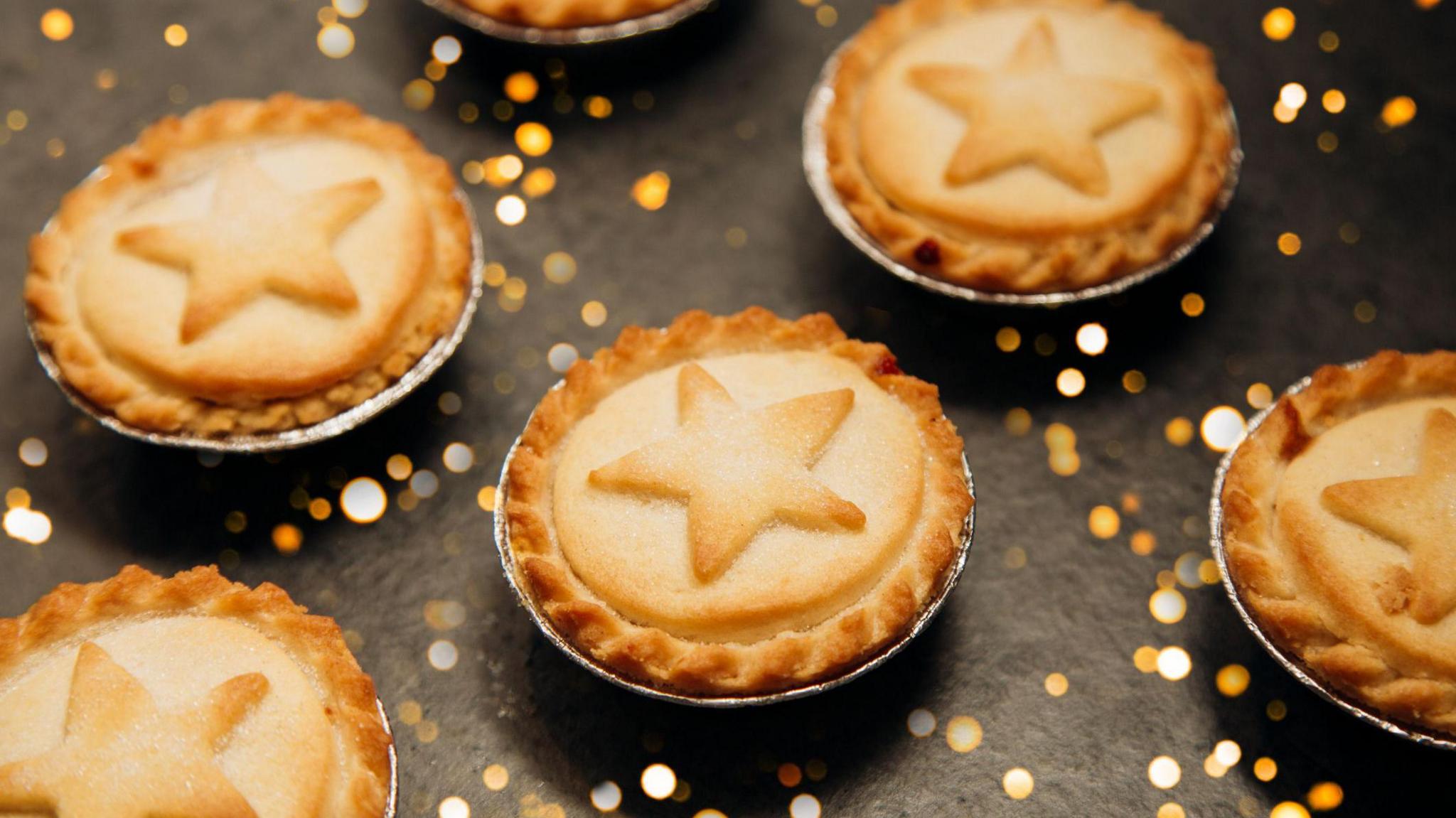
Mince pies, Christmas pudding and Christmas cake might be traditional festive snacks but they're definitely not ones to share with your pets.
They all contain raisins - which are highly toxic and not easily processed by their digestive system.
Dogs may start vomiting soon after eating, resulting in possible dehydration and potential kidney failure.
Currants and sultanas, which are often found in these foods, are also toxic -particularly to dogs - although they should be kept away from cats too.
Onions, garlic and leeks are not great for dogs
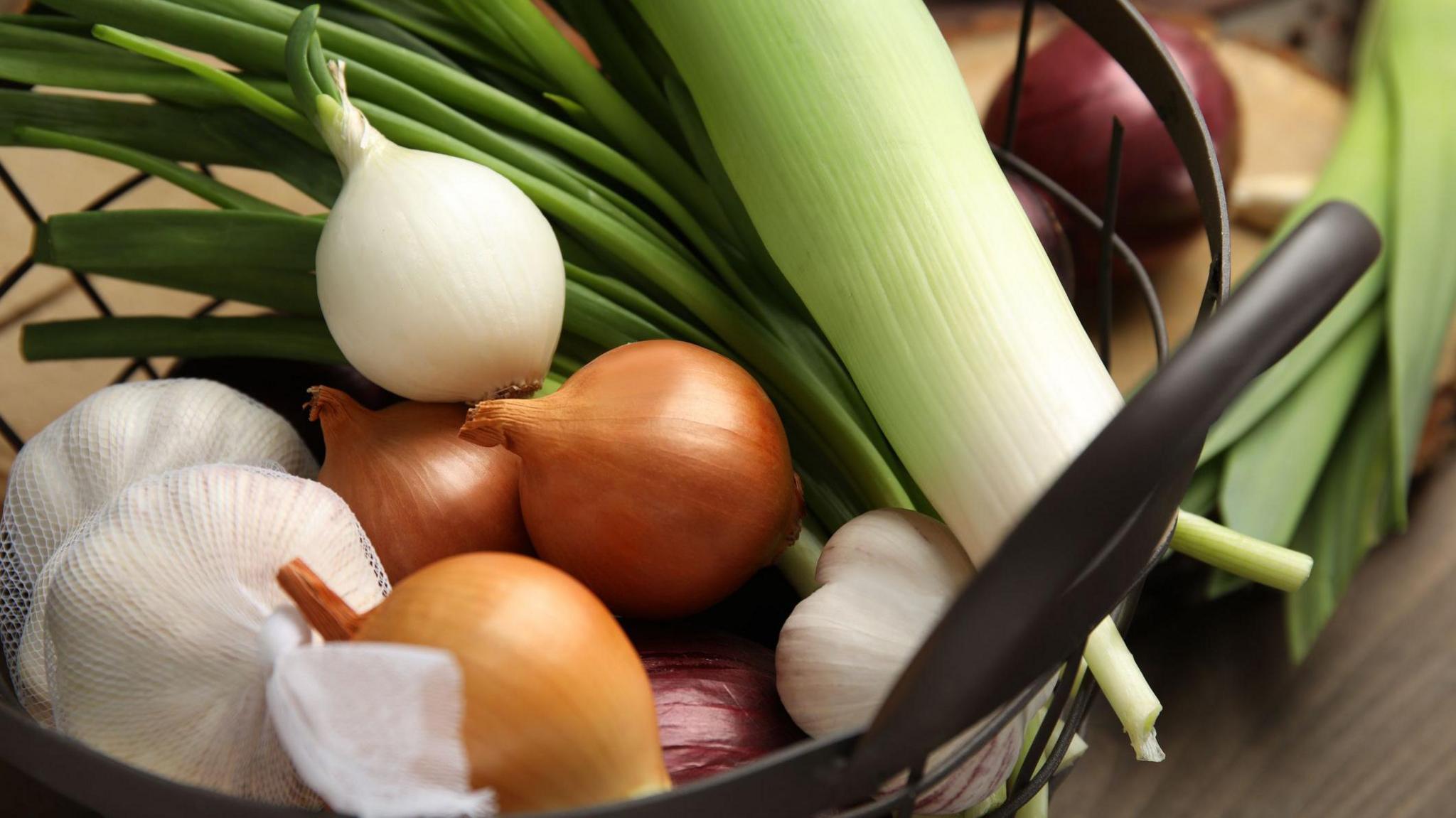
Garlic, onions and leeks can all cause stomach problems for your pets whether they're raw or cooked.
They're part of the allium family of vegetables that are poisonous for both cats and dogs.
While you might not be tucking into an onion like The Grinch might be this Christmas by taking a big bite out of a raw one, these ingredients are often used for the gravy on your Christmas dinner.
So it's best not to share your plate with your pet no matter how tempting it might be!
The food on your plate is also likely to be quite fatty which can cause sickness and diarrhoea too.
Bones
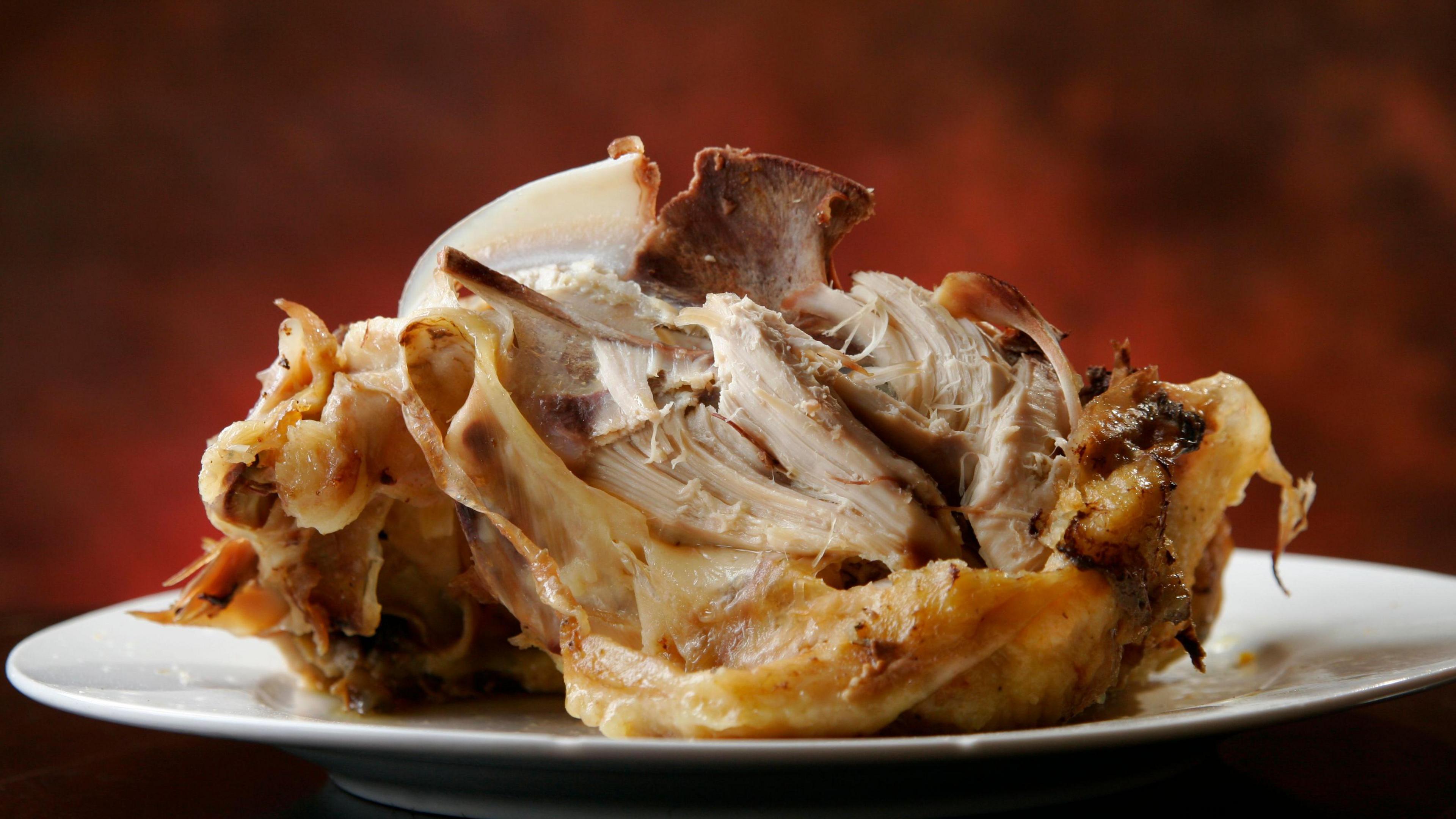
Dogs love to chew on a bone, right?
Well bones from your cooked chicken or turkey are very dangerous for dogs and cats.
When the bones have been cooked, they can splinter into sharp fragments.
They can cause choking, mouth injuries or even puncture the digestive tract causing internal bleeding.
Treat your pet to specially prepared foods from trusted shops and suppliers.
Further festive hazards for your pets include...
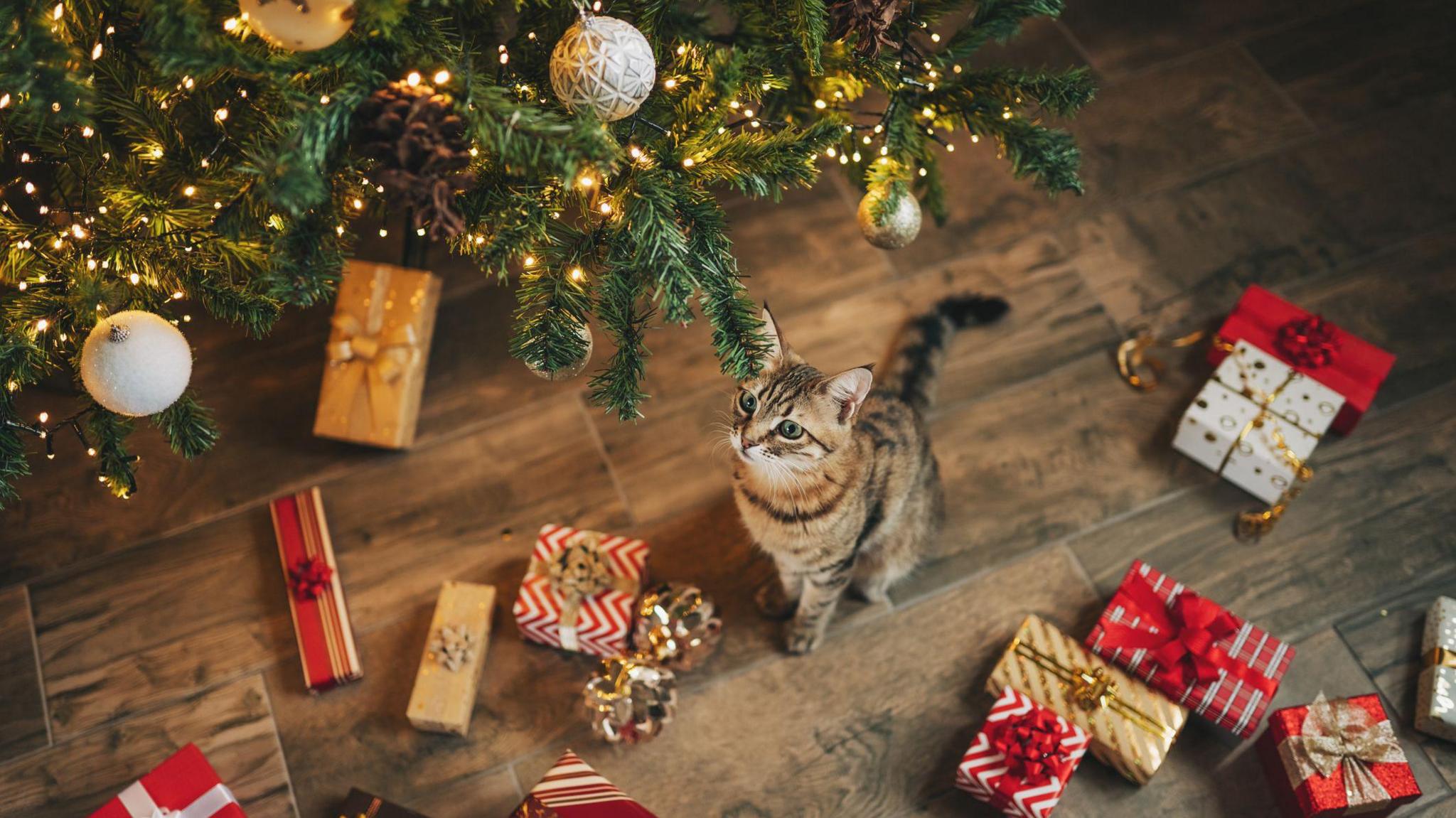
Christmas trees: If you've got a curious cat that likes to climb Christmas trees or play with ornaments make sure the tree is secure and stable. If you've got a real tree, it's important to clean up any pine needles that might fall off the branches so they don't end up stuck in any paws.
Christmas decorations: Lights, baubles and tinsel can all cause issues for pets if they're chewed on or eaten.
Presents: Bows, ribbon and tape can cause digestion issues in cats and dogs if they're eaten or chewed on.
Christmas plants: If you have poinsettias, holly or mistletoe in the house, make sure your pets don't eat them. It could cause vomiting, diarrhoea or heart problems.
If you are worried your pet has eaten something that could be harmful or is unwell tell a trusted adult straight away.
How can I treat my pet this Christmas?
Pet shops sell lots of different treats that are safe for your pets.
But RSPCA expert Lisa Hens suggests that rather than always looking for foodie treats, get your cat or dog an active present.
She recommends a nice new toy or, for dogs, even a lovely long walk
If you want to have some surprises Lisa says just hide your dog or cats' usual biscuits in leftover boxes or around the garden and let them sniff them out!
